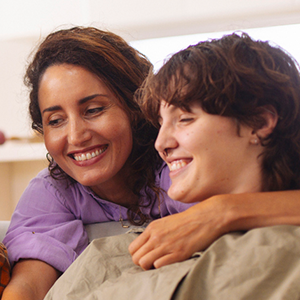Outreach Teen & Family Services: growth mindset

Summer is finally here!
One of the many reasons students look forward to summer break is the chance to disconnect from school’s academic and social demands. Getting a break from traditional school enables children, teens and families (and teachers) to focus on developing a growth mindset over the months of summer vacation.
A growth mindset supports the belief that with effort and perseverance, one can succeed. It describes how we might view challenges and daily setbacks. A growth mindset is the belief that intelligence, skills, and talents are malleable, and can change with effort, perseverance and practice; abilities are not set in stone.
Neuroscience explains this as “neuroplasticity,” a word that refers to the brain’s ability to change and adapt because of experience. When people say that the brain possesses plasticity, they are not suggesting that the brain is similar to plastic. Plasticity refers to the brain’s malleability, which is defined as being “easily influenced, trained or controlled.” The great news is that with a growth mindset, we can all get smarter by retraining the neurons to change or adjust. Instead of thinking, “I can’t do this,” having a growth mindset changes your internal voice to “I can’t do it yet.”
The opposite of a growth mindset is known as a fixed mindset. A fixed mindset is the belief that one’s innate abilities, talents, and intelligence are fixed. A person is either good or talented at something or is not.
Throughout the summer, discover fun opportunities for your family to practice that lead to a growth mindset. Here are just a few examples that you might want to incorporate into vacation time to foster a growth mindset with your family:
Encourage family members to get outside their comfort zone. Praise them, not for their mental quickness or natural intelligence, but for approaching the process of learning something new with grit and determination.
To best foster a growth mindset, emphasize perseverance and effort in a child’s extracurricular activities or household tasks. For example, you could say “I’m proud of how much effort you put into that soccer game,” rather than “I’m proud of how many goals you scored.”
Set a few goals as a family. Sit down one night and discuss how a learning goal differs from a performance goal. A learning goal focuses on overall learning; a performance goal focuses on demonstrating skills, content knowledge, or abilities, and is often judged in comparison to others.
Families who set learning goals focus on learning, an understanding from which they can draw conclusions, connect ideas and build relationships to new skills and concepts. Learning-oriented goals help develop dedication to learning over time, as opposed to performance goals, which are more about proving intelligence or ability on specific tasks. Research shows that while both types of goals help people achieve, learning goals lead to greater understanding and enhance one’s ability to apply acquired knowledge in new ways during future challenges.
Make a family plan to participate in the growth mindset journey this summer!
Outreach Teen & Family Services is a nonprofit, confidential counseling service. We offer programs to youth ages 5 to 21, parents and families, in a welcoming, supportive environment. This column is partially underwritten by the Mt. Lebanon Police Association.






